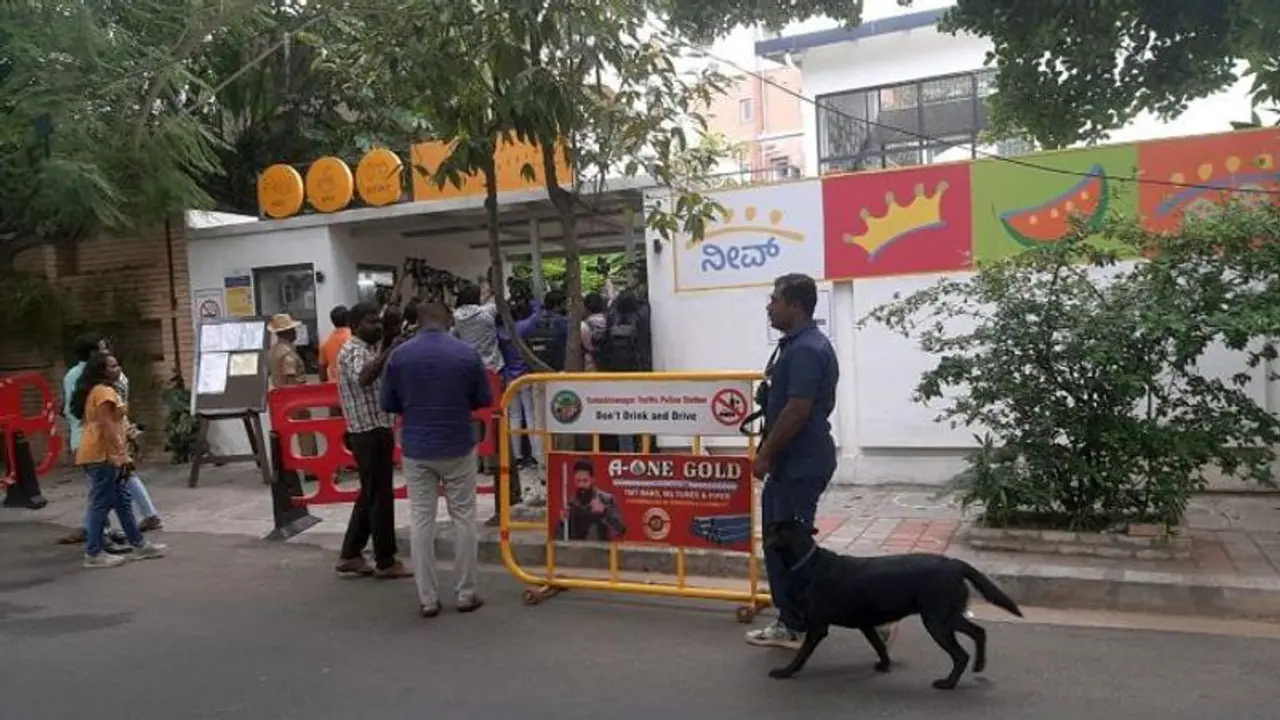The surge in hoax emails threatening schools in Bengaluru is a serious concern requiring prompt action from the police and relevant stakeholders. A determined approach is necessary to protect schools and communities from the threat posed by hoax emails, says Girish Linganna
A hoax email claiming that bombs were planted in several schools in Bengaluru city triggered panic and chaos on Thursday, December 1, 2023. The email was sent from a masked IP address by an unidentified person. The police are probing the case and trying to trace the sender.

In recent times, the city of Bengaluru has faced a distressing wave of hoax emails threatening to plant bombs in schools. These deceitful messages have raised serious concerns among parents, instilling fear and anxiety in both children and adults alike. In response, it is imperative for the police to swiftly investigate the source and motive behind these emails while taking proactive measures to ensure the safety and security of schools and the public.
Tracing the Source and Enhancing Cybersecurity
A crucial step in combating hoax emails is to strengthen cybersecurity measures and enhance surveillance of email service providers and internet service providers. By tracing IP addresses and locating the senders of these deceptive emails, the police can identify culprits and apprehend them promptly. Collaborative efforts with technology experts and intelligence agencies can aid in developing sophisticated techniques to track down and disentangle complex networks behind these sinister acts.
Coordinating with Schools and Education Authorities
The police should establish close coordination with school authorities and the education department to develop comprehensive guidelines and protocols for handling such situations. Creating a rapid response team within schools, trained to identify signs of a potential hoax email, ensures timely action takes place. Promptly verifying the authenticity of emails, informing law enforcement agencies, and evacuating premises if necessary can help mitigate risks and reassure both parents and students. Regular mock drills can also be conducted to familiarize school staff and students with emergency protocols.
Creating Awareness and Sensitization
Preventing the occurrence of hoax emails necessitates greater public awareness and sensitization. Collaborative efforts between the police and educational institutions should focus on educating students about the gravity of such pranks. By imparting knowledge about potential consequences and the impact these actions have on personal and societal security, students can be discouraged from indulging in such activities. Initiatives such as awareness campaigns, workshops, and seminars can serve as effective platforms for spreading this crucial message.
Legal Measures and Penalties
To deter potential offenders, strict legal actions must be taken against those responsible for circulating hoax emails. Stringent penalties should be imposed on individuals who create public nuisance and endanger the lives of others. By sending a clear message through tough penalties, the law enforcement agencies can discourage such malicious acts and protect the sanctity of educational institutions. Collaboration between the police, legal authorities, and advocacy groups can help devise appropriate measures and ensure speedy justice for victims.
Engaging Technology and Artificial Intelligence
The integration of technology and artificial intelligence can play a vital role in addressing the challenges posed by hoax emails. Implementing advanced filtering systems capable of identifying suspicious patterns and keywords can potentially curtail the spread of such emails. Additionally, utilizing machine learning algorithms to discern emerging trends in the content of hoax emails can aid in developing proactive strategies to prevent recurrence.
Community Participation
Building a resilient and secure environment starts with active community participation. Encouraging citizens to report any suspicious activity or emails they encounter can serve as a valuable source of information for law enforcement agencies. Public engagement programs, such as neighbourhood watch initiatives, can foster a sense of collective responsibility and increase vigilance in identifying potential threats. Together, citizens and the police can create a robust network that curbs the circulation of hoax emails.
The alarming rise in hoax emails threatening schools in Bengaluru is a cause for grave concern, and it demands swift action from the police and other stakeholders. By prioritizing cybersecurity measures, coordinating with schools, creating awareness, imposing stringent penalties, and leveraging technology, authorities can effectively address this issue.
It is crucial to foster a safe and secure environment in educational institutions, alleviating the distress faced by parents and children. Only through a united and determined approach can we ensure the protection of our schools and communities from the menace of hoax emails.
The author of this article is a Defence, Aerospace & Political Analyst based in Bengaluru. Views expressed are personal.
